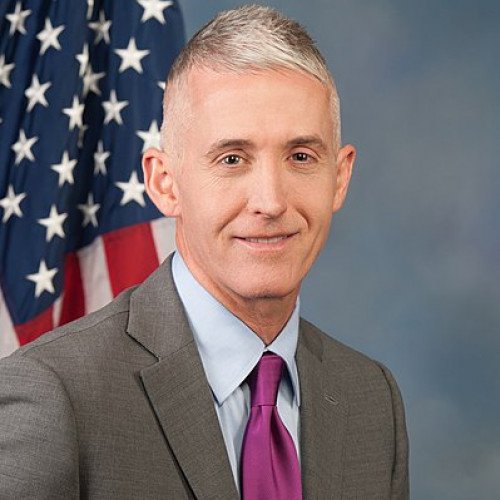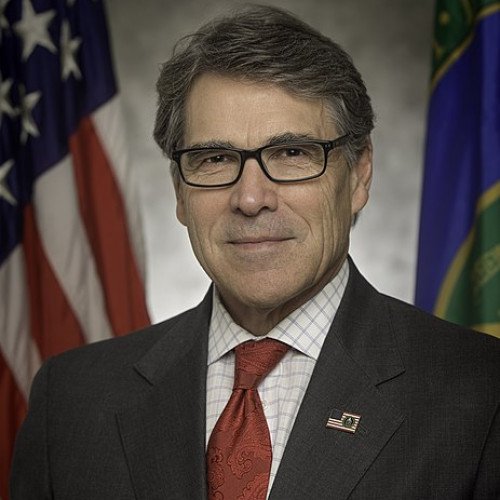Trey Gowdy VS Rick Perry

Trey Gowdy
Harold Watson "Trey" Gowdy III (born August 22, 1964) is an American television news personality, former politician, and former federal prosecutor who served as the U.S. Representative for South Carolina's 4th congressional district from 2011 to 2019. His district included much of the Upstate region of South Carolina, including Greenville and Spartanburg. Before his congressional career, Gowdy served as a federal prosecutor in the District of South Carolina from 1994 to 2000 and then as the solicitor (district attorney) for South Carolina's Seventh Judicial Circuit, comprising Spartanburg and Cherokee counties, from 2000 to 2010. From 2014 to 2016, Gowdy chaired the United States House Select Committee on Events Surrounding the 2012 Terrorist Attack in Benghazi which was partly responsible for discovering the existence of Hillary Clinton's private email server. His investigative committee spent over two and a half years and $7.8 million investigating the events surrounding the 2012 Benghazi attack, ultimately finding no evidence of specific wrong-doing by then-Secretary of State Clinton. Gowdy pressed for the prosecution of Hillary Clinton during the 2016 presidential campaign. From 2017, he chaired the House Oversight Committee. On January 31, 2018, Gowdy announced that he would not seek re-election in 2018 and that he intended to pursue a legal career instead of politics. He has since joined the law firm Nelson Mullins Riley & Scarborough, and also joined Fox News as a contributor.
Statistics for this Xoptio

Rick Perry
James Richard "Rick" Perry (born March 4, 1950) is an American politician who served as the 14th United States Secretary of Energy from 2017 to 2019 and as the 47th Governor of Texas from 2000 to 2015. Perry also ran unsuccessfully for the Republican nomination for President of the United States in the 2012 and 2016 elections. Born into a family of cotton farmers in Haskell, Texas, Perry graduated from Texas A&M University in 1972 and entered into the United States Air Force, serving a five-year stint and achieving the rank of captain. After leaving the Air Force in 1977, Perry returned to Texas and entered politics, serving as a Democratic member of the Texas House of Representatives from 1985 to 1991. In 1989, Perry switched parties and became a Republican, and was elected Agriculture Commissioner of Texas the following year. In 1998, Perry was elected Lieutenant Governor of Texas, becoming the state's first Republican Lieutenant Governor since Reconstruction. Perry assumed the governorship of Texas in December 2000, after Governor George W. Bush resigned following his election as President. Perry was re-elected Governor three times, becoming the longest-serving Governor in Texas history. As Governor, Perry identified as a staunch conservative, enacting conservative fiscal policies, restrictions on abortion and expanded gun rights. Long considered a potential presidential candidate, Perry officially announced his candidacy for the 2012 Republican nomination for President in August 2011. Perry initially performed well in polling and showed strong fundraising prowess, leading to him being considered a serious contender for the nomination, however his support declined following poor performances in debates and early primaries and he withdrew from the race in January 2012.Perry declined to run for re-election to a fourth term as Governor and left office in 2015, launching a second presidential campaign shortly after. Perry's second presidential campaign failed to garner substantial polling support, fundraising or media attention, leading to him withdrawing from the race after only three months. Perry was initially a vocal opponent of Donald Trump's 2016 campaign for President, however he later endorsed Trump after he secured the Republican nomination. After winning the presidency, Trump appointed Perry as Secretary of Energy and he was confirmed by the United States Senate in a 62–37 vote on March 2, 2017. On October 17, 2019, Perry reported to Trump that he intended to resign as Secretary of Energy at the end of the year. He left office on December 1, 2019.